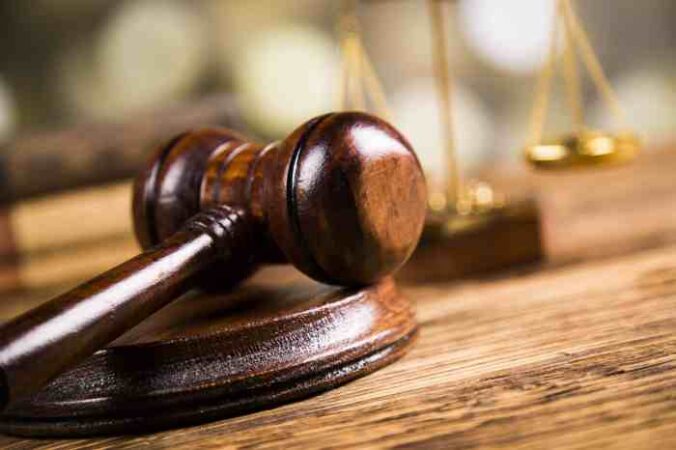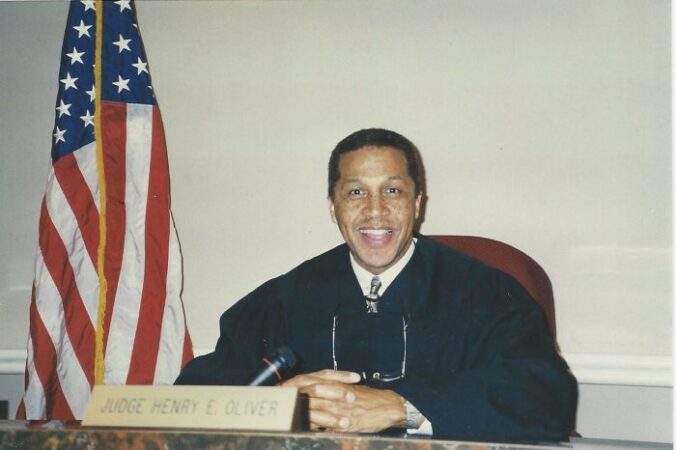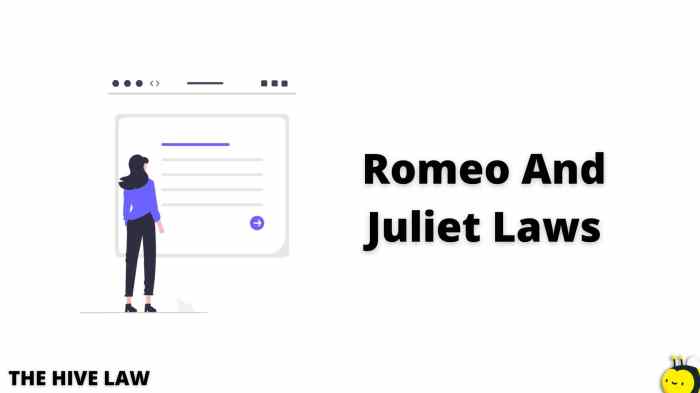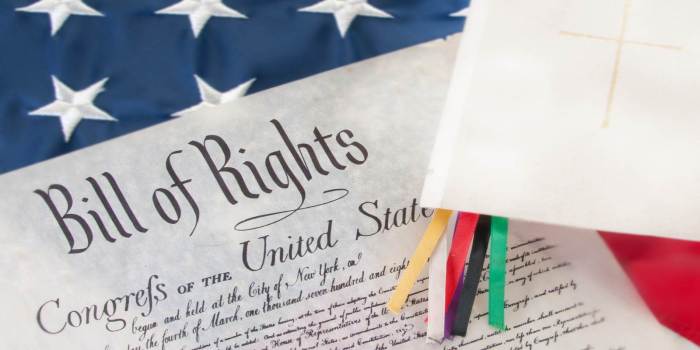
What is due process of law sets the stage for this enthralling narrative, offering readers a glimpse into a story that is rich in detail and brimming with originality from the outset. The concept of due process, a cornerstone of the American legal system, ensures that individuals are treated fairly and justly within the framework of the law. This fundamental principle, deeply rooted in history, guarantees that individuals are afforded the right to a fair hearing, access to legal representation, and the opportunity to present their case before a neutral decision-maker.
From its origins in English common law, the concept of due process has evolved significantly, shaped by landmark legal cases and constitutional amendments. This exploration delves into the historical context, constitutional foundations, and practical applications of due process, revealing its multifaceted nature and its enduring significance in protecting individual rights and ensuring a fair and just society.
Historical Context of Due Process
The concept of due process of law, a fundamental principle of justice and fairness, has deep roots in the history of Western legal systems. Its evolution reflects a long struggle for individual rights and protection against arbitrary government actions.
Origins in English Common Law
The origins of due process can be traced back to the Magna Carta, a landmark document signed in 1215, which limited the power of the English monarch and established certain rights for individuals. The Magna Carta contained clauses that guaranteed individuals the right to a fair trial, protection from arbitrary imprisonment, and the right to due process.
“No free man shall be seized or imprisoned, or stripped of his rights or possessions, or outlawed or exiled, or in any way destroyed, nor will we proceed against him by force or arms, except by the lawful judgment of his peers or by the law of the land.”
This clause, known as Clause 39, is considered to be the foundation of the due process concept in English law.
Evolution in the American Legal System
The concept of due process was further developed in the American legal system, particularly during the colonial period. The colonists, having experienced the abuses of the British Crown, were deeply concerned about the protection of individual rights. This concern was reflected in the Declaration of Independence, which proclaimed that all men are endowed with certain unalienable rights, including the right to life, liberty, and the pursuit of happiness.
The framers of the United States Constitution, drawing upon the principles of English common law and the Declaration of Independence, enshrined the concept of due process in the Fifth and Fourteenth Amendments. The Fifth Amendment states that no person shall “be deprived of life, liberty, or property, without due process of law.” The Fourteenth Amendment extends this protection to state governments, prohibiting them from denying any person within their jurisdiction “the equal protection of the laws.”
Key Historical Cases
A number of landmark cases have shaped the understanding of due process in the United States.
- Dartmouth College v. Woodward (1819): This case established the principle that contracts, including charters granted by state governments, are protected by the due process clause of the Fifth Amendment.
- Barron v. Baltimore (1833): This case initially limited the application of the Bill of Rights to the federal government, but it laid the groundwork for the later incorporation of the due process clause to the states through the Fourteenth Amendment.
- Slaughterhouse Cases (1873): This case, while controversial, was a significant step in the development of the Fourteenth Amendment’s due process clause. It began the process of applying the Fourteenth Amendment to the states, though it did not apply the entire Bill of Rights.
- Hurtado v. California (1884): This case ruled that the Fourteenth Amendment’s due process clause did not require states to use grand juries in criminal prosecutions, as required by the Fifth Amendment.
- Twining v. New Jersey (1908): This case further clarified the application of the due process clause to the states, establishing that not all provisions of the Bill of Rights were applicable to the states through the Fourteenth Amendment.
- Gitlow v. New York (1925): This case marked a turning point in the incorporation doctrine, holding that the Fourteenth Amendment’s due process clause incorporated the First Amendment’s guarantee of free speech to the states. This case began the process of applying the Bill of Rights to the states, and this process has continued to this day.
Constitutional Foundations of Due Process
The concept of due process of law finds its bedrock in the United States Constitution, specifically in the Fifth and Fourteenth Amendments. These amendments enshrine fundamental principles that ensure fairness and justice in legal proceedings and government actions.
The Fourteenth Amendment and Due Process
The Fourteenth Amendment, ratified in 1868, was primarily intended to secure the civil rights of formerly enslaved people. However, its Due Process Clause has become a cornerstone of American jurisprudence, extending its protection to all citizens. The clause states:
“No State shall make or enforce any law which shall abridge the privileges or immunities of citizens of the United States; nor shall any State deprive any person of life, liberty, or property, without due process of law; nor deny to any person within its jurisdiction the equal protection of the laws.”
This language has been interpreted to mean that states cannot arbitrarily deprive individuals of their fundamental rights without following fair procedures. It essentially prohibits state governments from acting in a way that is unfair or unreasonable.
The Fifth Amendment and Due Process
The Fifth Amendment, ratified in 1791, focuses on the federal government’s power and its limitations. Its Due Process Clause reads:
“No person shall … be deprived of life, liberty, or property, without due process of law; nor shall private property be taken for public use, without just compensation.”
This clause restricts the federal government’s ability to infringe upon individuals’ rights without adhering to established legal procedures. It also emphasizes the concept of just compensation if the government needs to seize private property for public use.
Procedural Due Process vs. Substantive Due Process
Due process can be divided into two categories: procedural and substantive.
- Procedural Due Process focuses on the fairness of the procedures used by the government when depriving individuals of their life, liberty, or property. It requires that individuals be given notice of the charges against them, an opportunity to be heard, and a fair trial. This includes the right to legal representation, the right to confront witnesses, and the right to appeal a decision.
- Substantive Due Process, on the other hand, examines the content of the laws themselves. It ensures that government actions are not arbitrary or unreasonable and that they are consistent with fundamental rights. It protects individuals from laws that infringe upon their fundamental rights, even if the procedures used to enact those laws are fair.
For instance, a law that prohibits all forms of free speech would violate substantive due process, even if it was passed through a fair legislative process. This is because it would infringe upon a fundamental right guaranteed by the First Amendment.
Procedural Due Process
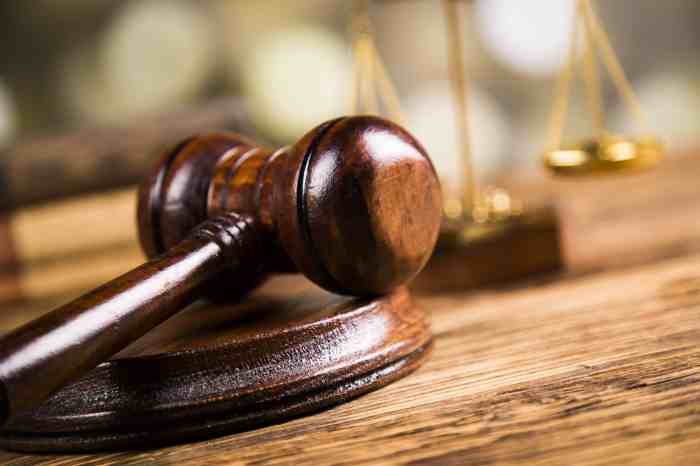
Procedural due process is a fundamental principle of American law that ensures fairness and impartiality in government proceedings that affect individual rights. It establishes a set of minimum procedural safeguards that must be followed to ensure that individuals are not deprived of life, liberty, or property without a fair and just process.
Core Elements of Procedural Due Process
Procedural due process requires the government to follow certain procedures when taking actions that affect individuals. These procedures are designed to ensure that individuals have a fair opportunity to be heard and to present their case before the government can deprive them of their rights. The core elements of procedural due process include:
- Notice: Individuals must be given adequate notice of the government’s intended action. This notice must be timely, clear, and understandable, and it must inform individuals of the nature of the action, the reasons for the action, and the potential consequences of the action.
- Opportunity to be Heard: Individuals must be given a meaningful opportunity to be heard before the government can take action against them. This opportunity may include the right to a hearing, the right to present evidence, the right to cross-examine witnesses, and the right to legal representation.
- Impartial Decision-Maker: The government official or body that makes the decision must be impartial and unbiased. This means that the decision-maker must not have any personal interest in the outcome of the case and must be free from any undue influence or pressure.
- Right to Counsel: In some cases, individuals may have a right to legal representation. This right is particularly important in criminal proceedings, where individuals may face serious penalties if convicted.
Stages of a Legal Process Where Due Process Applies
Procedural due process applies to various stages of a legal process, ensuring fairness throughout the proceedings. These stages include:
- Pre-Trial Proceedings: This includes arrest, bail hearings, and discovery, where due process guarantees the right to a fair arrest, reasonable bail, and access to relevant information.
- Trial Proceedings: During the trial, due process ensures a fair trial, including the right to a jury, the right to confront witnesses, and the right to present evidence.
- Post-Trial Proceedings: This encompasses sentencing, appeals, and post-conviction relief, where due process ensures a fair sentence, the right to appeal, and the opportunity to seek relief from a wrongful conviction.
Examples of Procedural Due Process Safeguarding Individual Rights
Procedural due process safeguards individual rights in numerous ways, ensuring fairness and preventing arbitrary government action. Here are some examples:
- Government Benefits: Before terminating a person’s welfare benefits, the government must provide notice, an opportunity to be heard, and a fair hearing.
- Student Discipline: Before expelling a student, a school must provide notice, an opportunity to be heard, and a fair hearing.
- Criminal Proceedings: Before convicting a person of a crime, the government must provide notice, an opportunity to be heard, and a fair trial.
Substantive Due Process
Substantive due process is a legal doctrine that prevents the government from enacting laws that infringe on fundamental rights. It is distinct from procedural due process, which focuses on the fairness of procedures used to deprive someone of life, liberty, or property. While procedural due process ensures fair procedures, substantive due process focuses on the substance of the law itself.
Substantive due process ensures that government actions are not only fair in procedure but also justified in their substance. It serves as a safeguard against arbitrary or oppressive government action that may infringe on fundamental rights, even if those actions are taken through proper procedures.
Types of Rights Protected
Substantive due process protects a range of fundamental rights that are not explicitly listed in the Constitution but are considered inherent to individual liberty. These rights have been recognized through judicial interpretation and are often referred to as “unenumerated rights.”
- Right to Privacy: This includes rights related to personal choices, such as marriage, procreation, contraception, and abortion. Landmark cases like Griswold v. Connecticut (1965) and Roe v. Wade (1973) established this right.
- Right to Free Speech and Association: These rights are protected under the First Amendment but are also reinforced by substantive due process. Cases like Schenck v. United States (1919) and NAACP v. Alabama (1958) exemplify the application of substantive due process in protecting these rights.
- Right to Travel: This right, although not explicitly mentioned in the Constitution, has been recognized as fundamental. Cases like Shapiro v. Thompson (1969) and Saenz v. Roe (1999) highlight the protection of this right under substantive due process.
- Right to Refuse Medical Treatment: Individuals have the right to make decisions about their own medical care, including the right to refuse treatment. Cases like Cruzan v. Director, Missouri Dept. of Health (1990) demonstrate this right.
- Right to Bear Arms: While the Second Amendment guarantees the right to bear arms, substantive due process plays a role in defining the scope and limitations of this right. Cases like District of Columbia v. Heller (2008) and McDonald v. City of Chicago (2010) exemplify this.
Examples of Cases
- Lochner v. New York (1905): This case involved a New York law limiting the number of hours bakers could work. The Supreme Court struck down the law, finding it violated the right to contract, which was considered a fundamental right under substantive due process. This case is often cited as an example of judicial activism and the “Lochner era,” where the Court frequently struck down economic regulations.
- Roe v. Wade (1973): This landmark case recognized a woman’s right to abortion as a fundamental right protected by substantive due process. The Court held that the right to privacy encompassed a woman’s right to choose whether or not to terminate her pregnancy.
- Lawrence v. Texas (2003): This case struck down a Texas law criminalizing consensual sexual activity between adults of the same sex. The Court held that the law violated the right to privacy and the right to intimate association, both protected under substantive due process.
Due Process in Different Contexts
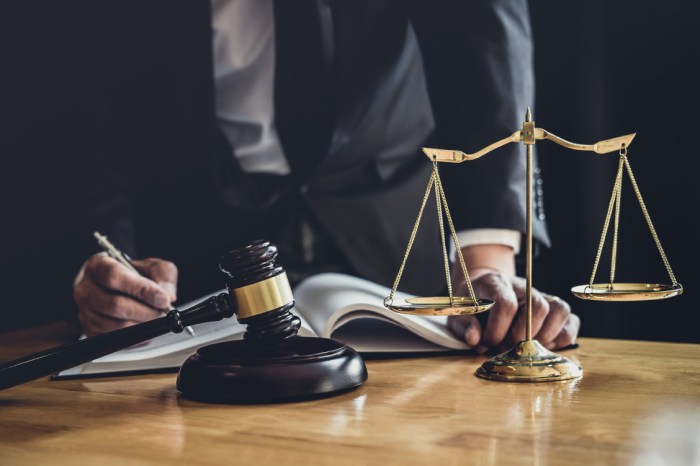
Due process is a fundamental principle of American law that applies to various legal proceedings. It ensures that individuals are treated fairly and have the opportunity to be heard before the government takes action against them. This principle applies to a wide range of contexts, including criminal justice, civil litigation, and administrative law.
Due Process in Criminal Justice Proceedings, What is due process of law
The application of due process in criminal justice proceedings is crucial to ensuring a fair and impartial system. The Fifth and Fourteenth Amendments of the U.S. Constitution guarantee that individuals accused of crimes have the right to due process of law.
- Right to Notice: Individuals must be informed of the charges against them. This includes the specific offense, the time and place of the alleged crime, and the evidence against them.
- Right to Counsel: Defendants have the right to legal representation. If they cannot afford an attorney, the government must provide one to them.
- Right to Confront Witnesses: Defendants have the right to face their accusers in court and cross-examine witnesses.
- Right to a Fair Trial: This includes the right to a jury trial, the right to a neutral judge, and the right to present evidence in their defense.
- Protection Against Double Jeopardy: Individuals cannot be tried twice for the same crime.
- Protection Against Self-Incrimination: Individuals cannot be forced to testify against themselves.
Due Process in Civil Litigation
Due process also applies to civil litigation, which involves disputes between private parties. While the specific requirements may vary depending on the nature of the case, the fundamental principles of due process remain consistent.
- Notice and Opportunity to Be Heard: Parties must be given adequate notice of the lawsuit and an opportunity to present their case. This includes the right to file an answer to the complaint, present evidence, and argue their position before the court.
- Right to Discovery: Parties have the right to gather information relevant to the case through procedures like interrogatories, depositions, and document requests. This ensures that both sides have a fair opportunity to prepare their case.
- Right to a Fair Trial: While civil trials may not involve a jury, the right to a fair trial still applies. This includes the right to a neutral judge, the right to present evidence, and the right to cross-examine witnesses.
Due Process in Administrative Law
Administrative law governs the activities of government agencies. Due process is essential in administrative proceedings to ensure that agencies act fairly and reasonably.
- Notice and Opportunity to Be Heard: Individuals affected by agency actions must be given notice of the proposed action and an opportunity to present their views. This often involves formal hearings or informal procedures where individuals can present evidence and argue their case.
- Right to Counsel: Individuals may have the right to legal representation in administrative proceedings, depending on the specific case.
- Right to a Fair Decision: Agencies must base their decisions on evidence and follow established procedures. They cannot act arbitrarily or capriciously.
Challenges to Due Process
In the modern era, the concept of due process faces numerous challenges, stemming from evolving societal dynamics, technological advancements, and shifts in political landscapes. These challenges raise concerns about the effective implementation and safeguarding of individual rights, demanding a critical examination of the existing framework and its adaptability to contemporary realities.
The Impact of Technology on Due Process Rights
The rise of technology has profoundly impacted the landscape of due process, presenting both opportunities and challenges. While technology can enhance efficiency and accessibility in legal proceedings, it also raises concerns about privacy, data security, and the potential for bias.
- Surveillance Technologies: The widespread use of surveillance technologies, such as facial recognition and body cameras, raises concerns about the potential for misuse and the infringement of individual privacy. Balancing public safety with individual liberties becomes crucial in this context.
- Online Data Collection: The vast amount of personal data collected online raises concerns about the potential for misuse in legal proceedings. Ensuring that individuals have adequate notice and control over their data is essential to protect due process rights.
- Algorithmic Bias: The use of algorithms in decision-making processes, such as bail setting or risk assessment, raises concerns about the potential for bias and unfair outcomes. Ensuring that these algorithms are fair, transparent, and accountable is critical to safeguarding due process.
Cases Where Due Process Has Been Contested
Numerous legal cases have challenged the application of due process in various contexts. These cases highlight the ongoing debate about the interpretation and implementation of due process principles in a changing world.
- Miranda v. Arizona (1966): This landmark case established the requirement that individuals be informed of their Fifth Amendment rights, including the right to remain silent and the right to an attorney, upon arrest. The decision significantly impacted the application of due process in criminal proceedings.
- Roe v. Wade (1973): This case established a constitutional right to abortion, based on the right to privacy implied by the Fourteenth Amendment’s Due Process Clause. The decision sparked ongoing debate about the scope of substantive due process and the balance between individual rights and state interests.
- Kelo v. City of New London (2005): This case addressed the Fifth Amendment’s Takings Clause, which requires just compensation for private property taken for public use. The decision broadened the definition of “public use” to include economic development, raising concerns about the potential for abuse of eminent domain powers.
Due Process and Social Justice: What Is Due Process Of Law
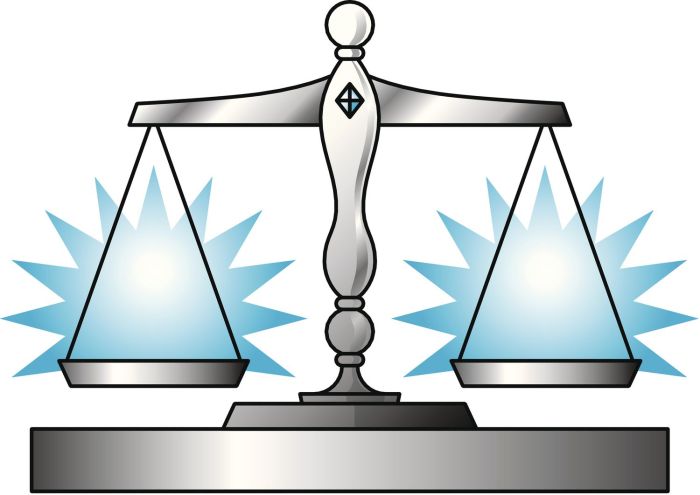
Due process of law is not just a legal principle; it’s a cornerstone of a fair and just society. It ensures that everyone, regardless of their background or status, is treated equitably and with respect under the law. This principle plays a vital role in protecting marginalized communities, fostering social equality, and addressing historical and ongoing injustices.
The Contribution of Due Process to a Fair and Just Society
Due process ensures fairness and impartiality in legal proceedings. It guarantees individuals the right to a fair hearing, the opportunity to be heard, and access to legal representation. This prevents arbitrary or discriminatory actions by the government, promoting trust and legitimacy in the legal system.
The Role of Due Process in Protecting Marginalized Communities
Marginalized communities, often facing systemic discrimination and prejudice, are particularly vulnerable to unfair treatment by the legal system. Due process acts as a safeguard, ensuring that these communities have access to the same legal protections as everyone else.
“Due process is the very essence of a scheme of ordered liberty and if it is denied or disregarded, there is no liberty.” – Justice Benjamin N. Cardozo
Examples of Due Process Addressing Social Injustices
Due process has been instrumental in addressing social injustices throughout history. For example, the landmark case of Brown v. Board of Education (1954), which declared racial segregation in public schools unconstitutional, relied heavily on the Fourteenth Amendment’s Due Process Clause. This decision, along with subsequent legal challenges, helped dismantle discriminatory practices and promote racial equality.
Another example is the Americans with Disabilities Act (ADA), which prohibits discrimination against individuals with disabilities in various aspects of life, including employment, public accommodations, and transportation. The ADA relies on the Due Process Clause to ensure that people with disabilities have equal access to opportunities and resources.
Closure
In conclusion, due process of law stands as a testament to the enduring commitment to fairness and justice in our society. It serves as a vital safeguard against arbitrary government action, ensuring that individuals are treated with dignity and respect within the legal system. Understanding the principles of due process empowers individuals to navigate the legal landscape with confidence, knowing that their rights are protected. As we navigate the complexities of the modern world, the principles of due process remain indispensable, providing a foundation for a just and equitable society for all.
General Inquiries
What are some examples of procedural due process in action?
Examples of procedural due process include the right to notice of legal proceedings, the right to a fair hearing before an impartial judge, the right to legal representation, and the right to present evidence in one’s defense.
What are some examples of substantive due process?
Substantive due process protects fundamental rights, such as the right to free speech, the right to privacy, and the right to religious freedom. Cases involving substantive due process often involve challenges to laws or government actions that are deemed to be arbitrary or unreasonable.
How does due process apply to administrative law?
Due process applies to administrative law by ensuring that individuals are given a fair opportunity to be heard before government agencies make decisions that affect them. This includes the right to notice, the right to present evidence, and the right to appeal unfavorable decisions.
How has technology impacted due process?
Technology has both enhanced and challenged due process rights. While technology can improve access to information and facilitate communication, it can also raise concerns about privacy, surveillance, and the potential for bias in algorithms used in legal proceedings.
